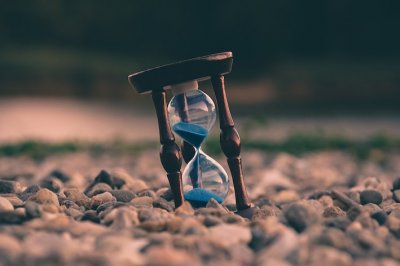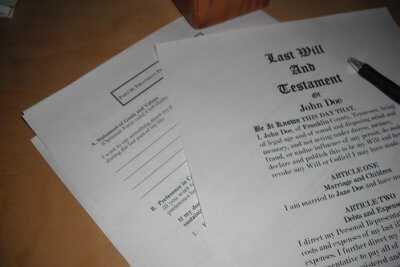Fear of Death – When Facing Mortality Feels Terrifying

photo by Aron Visuals
by Andrea M. Darcy
Fear of death is a popular Western phenomenon. In a culture where we simply avoid the subject until we have no choice, many of us fear either our own end, or fear the death of those we love.
Why are we all so afraid of dying?
“The oldest and strongest emotion of mankind is fear, and the oldest and strongest kind of fear is fear of the unknown.” H.P. Lovecraft
As humans we fear what we don’t know. We fear new schools as children, new jobs as adults, and what our future will bring or won’t bring.
And unlike other cultures who celebrate and talk about death, in Western society many of us don’t talk about death within families until it is forced upon us by fate. We aren’t sure what we are dealing with. And because death is so unpredictable and unavoidable, we feel vulnerable.
Is it really even death you are afraid of?
Fear of death, if examined, can also be about other things entirely. We are afraid of:
- not having done enough with our lives
- leaving others behind
- not being organised and leaving a mess for others to sort
- being forgotten
- what comes after death
- pain and suffering.
Fearing death as a single female

photo by Ben White
Research shows that there are certain factors that make us more vulnerable to death anxiety and death depression.
A study looking at students, church members, and workers at an air terminal found that being female and being older was more connected to death anxiety. Whereas being alone in life without a partner could cause death depression.
How to handle fear of death and dying
So what can we do if we have a constant death fear?
1. Make an overview of your life.
Developmental psychologist Erik Erikson is famed for his ‘eight stages of psychosocial development’. The idea is that a healthy individual progresses through different stages of understanding of themselves and others in a lifetime. He labelled the last stage of life Ego Integrity vs Despair.
In this phase we begin to think over our life. We can find meaning and purpose in the life we lived (Ego Integrity), or we can view our lives as a series of failures, of missed opportunity (Despair). If we find integrity, we are less likely to have death anxiety.
So an idea here is to sit down and intentionally make your life overview, now. On paper. With the intention of finding meaning and purpose. Divide your life into decades, or into five year chunks if you are young still. What things did you do during that time that bought meaning and purpose?
2. Educate yourself.
Again, fear of death can be driven by the unknown. So make death and the process of death a known by doing your own research.
This could be talking to a ‘death doula’, or visiting one of the now trendy online ‘death cafes’ where people talk openly and positively about death and dying. In a survey held by deathcafe.com, 80% of users felt that being part of such a group made them feel better about life, not just death.
Read the science about death, and about different views of life after death. If you are afraid of pain and suffering, learn about the body’s unique methods of navigating them. You might even find watching an autopsy online helpful.
If you are afraid of losing loved ones like a parent, look into the steps one must take after losing someone. Learning about the stages of grief and bereavement might help.
3. Organise your own death.

By: Ken Mayer
Again, with a fear of death we can be unconsciously worried that we will leave others in the lurch, or that we aren’t organised and prepared. And yet we keep putting off the very things that could help with that, such as:
- buying life insurance
- preparing a will
- asking someone to be a guardian of our children
- organising paperwork
- decluttering our house
- budgeting and organising our own funeral.
If you feel macabre about even beginning with any of this, start small. Just write out a rough sketch of your will and see how it feels. Or ask a friend if they would like to get organised around this sort of thing together.
4. Learn and practise mindfulness.
In a study published in the Journal of Personality and Social Psychology, Kashdan and his fellow researchers looked at what happened if we bring mindfulness to our fear of death.
They found that mindful people were not only more tolerant of others despite having to think about death, they also showed less fear around their own death.
[Learn how to have a mindfulness practice starting today using our free ‘Guide to Mindfulness’.]
5. Connect to something bigger than yourself.
It’s not about believing in God, or finding religion. It’s about finding something that gives things a bigger meaning for you personally.
A study on religion and spirituality in end-of-life caregivers found that religion and spirituality improved their ability to cope with distress.
Can therapy help me with a fear of death and dying?
Absolutely. You might want to try existential therapy, which has a focus on helping your find purpose. Or transpersonal psychotherapy, which combines psychotherapeutic approaches with esoteric thought and practices, helping you feel connected to yourself, others, and a greater whole.
Time to talk to a therapist about your fear of death and finally start living? Our top London therapists are available in our central London clinics or via online therapy sessions. Or use our booking platform to find UK-wide online counsellors that suit your budget.
 Andrea M. Darcy is a health writer and the editor and lead writer of this site. After a successful career in both journalism and film she retrained in coaching and counselling. She keeps meaning to write a will, but her ADHD keeps distracting her. Find her @am_darcy
Andrea M. Darcy is a health writer and the editor and lead writer of this site. After a successful career in both journalism and film she retrained in coaching and counselling. She keeps meaning to write a will, but her ADHD keeps distracting her. Find her @am_darcy




